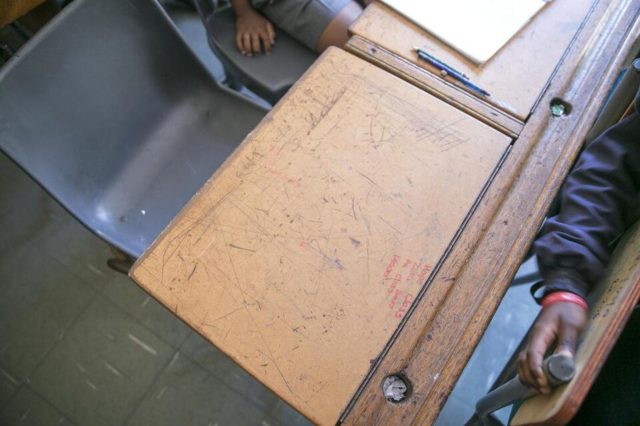A recent survey has painted a grim picture of the effects the pandemic is having on schooling in South Africa.
OVER 500,000 South African pupils have dropped out of school in the last 16 months.
Research indicates that the Covid-19 pandemic has led to a 20-year school drop-out record. The latest National Income Dynamics Study – Coronavirus Rapid Mobile Survey (NIDS-CRAM), has painted a grim picture of the effects the pandemic was having on schooling in the country.
The education research was conducted by Nompumelelo Mohohlwane from the research co-ordination, monitoring and evaluation unit of the Department of Basic Education, and Debra Shepherd from the Department of Economics at Stellenbosch University.
The research estimated that at least 500,000 children were not in school. Compared to 2018 figures, Mohohlwane said it meant that an additional 200,000 children aged 7 to 17 were out of school. In November 2020, there were 400,000 children out of school. The data was collected between April 6 and May 11, 2021.
The spokesperson of the national Department of Education, Elijah Mhlanga, said the high drop-out rate is directly related to Covid-19.
“The forced closure of schools, poverty and extended absence from schools results in children losing interest and leaving school. Unemployment has forced some young people to go look for opportunities to support their families,”Mhlanga said.
He said another factor that could’ve contributed to this high drop-out rate is the rotation of timetables as learners are not always at school.
“It doesn’t work as learners are not always in school. At home, some of them don’t get support and school work doesn’t get done,” he added.
On what they are doing as a department to remedy the situation, Mhlanga said the department is providing meals to pupils to ease the burden on parents.
“The department offers school transportation and other services. What is required is that society needs to get involved and encourage learners to come to school. A strong partnership between schools and members of the community is required.
“When members of the community vandalise schools, break in and steal food and equipment, they send a message that education doesn’t matter, which contributes to discouraging learners from coming to school.
“The responsibility does not belong to education authorities alone. For schools and the system to fully function all other entities need to play their part,” he said.
Senior lecturer in the Faculty of Psychology of Education at Unisa, Dr Connie Haasbroek, said school drop-out rates were the highest in the last 20 years.
“Schools were closed early for the winter holidays and were expected to resume on July 19. Teacher unions warned that schools might miss the date because of the high Covid-19 rates during the country’s third wave of infections. It’s been very difficult for schools and learners to deal with this instability,” she said.
She added that the longer it takes to get pupils back in class, the less likely they are to return.
“Teachers are finding themselves having to play catch-up. Vocational education should be integrated into our curriculum from early grades. Decision-making, self-awareness/self-knowledge and critical thinking skills are some of the important life skills that every learner must be able to master, enabling them to make the correct life choices. They need to be supported and enabled to make healthy decisions in terms of their schooling careers,” she said.








